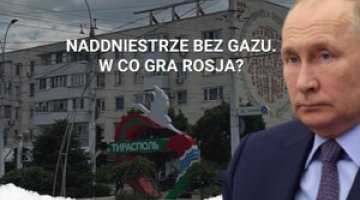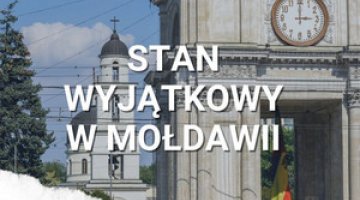Moldova opens an investigation against Gagauzia’s pro-Russian leader
On 24 April, Moldova’s Anti-Corruption Prosecutor’s Office brought an indictment to court against Evghenia Guțul, the başkan (head) of the pro-Russian Gagauz Autonomy, a region in southern Moldova. Guțul has close links with Ilan Șor, a pro-Russian businessman and politician who fled the country in 2019. According to the charges brought against her, when she was secretary of the Șor Party in 2019–22, she repeatedly transported cash from Russia to Moldova which was later used to illegally fund the organisation’s activity. She is also believed to have been responsible for paying participants in anti-government protests the party organised in 2022. The başkan has denied all charges, arguing that the allegation was fabricated at the request of Moldova’s incumbent president Maia Sandu, the leader of the ruling Party of Action and Solidarity (PAS).
Commentary
- The investigation against Guțul is an element of the deliberate pro-Western policy being pursued by PAS, which is intended to combat the Kremlin-backed parties and political groups which haved violated Moldovan law; this applies in particular to parties and groups linked with Șor. These efforts are also an element of a more comprehensive campaign to bring to justice the corrupt political and business groups which ruled the country until recently. Since the beginning of his career in 2018, Șor has also been among these groups. Guțul has been linked with him, and in 2023 was elected as Gagauzia’s başkan with his support. In 2019, Șor fled Moldova and moved to Israel (he also holds Israeli citizenship), and in April 2023 he was convicted on a charge of stealing US$1 bn from Moldovan banks back in 2014. In 2022–3, he was sanctioned by the US, the EU and other countries on charges including cooperating with Russia in order to destabilise the situation in Moldova.
- Since taking power, Guțul has pursued a policy which is at the same time clearly pro-Kremlin and confrontational towards President Sandu and the ruling PAS. Since the beginning of this year she has paid two visits to Russia, where she was received by Vladimir Putin, the Speaker of the Federation Council Valentina Matviyenko and other officials. The başkan has also received image-related backing from the Kremlin, as evidenced by the amount of publicity Russian media has given her (for example she appeared as a guest on Vladimir Solovyov’s programme). In April, she also signed an agreement with the Russian state-controlled Promsvyazbank, which will act as an intermediary in making additional pension payments to Gagauzian seniors of around €100 each. Previously, she suggested that the Gagauz Autonomy should declare independence if Moldova and Romania decide to unite, and announced that she would ask Moscow for help if Chișinău intended to hamper this process.
- Like Transnistria, Gagauzia has been a convenient instrument for the Kremlin to destabilise the political situation in Moldova. At present, Russia is paying particular attention to this region due to Moldova’s presidential elections planned for October (in which President Sandu will seek re-election) and parliamentary elections which will be held in mid-2025. Moscow intends to aggravate concern among the Moldovan electorate and to weaken the group centred around PAS. It also supports the so-called ‘parties of peace’ (such as the MAN party led by Chișinău’s mayor Ion Ceban); these are opposition parties which, although having nominally pro-European platforms, argue that Moldova should not antagonise Russia and maintain a neutral stance on the ongoing Russian-Ukrainian war.





